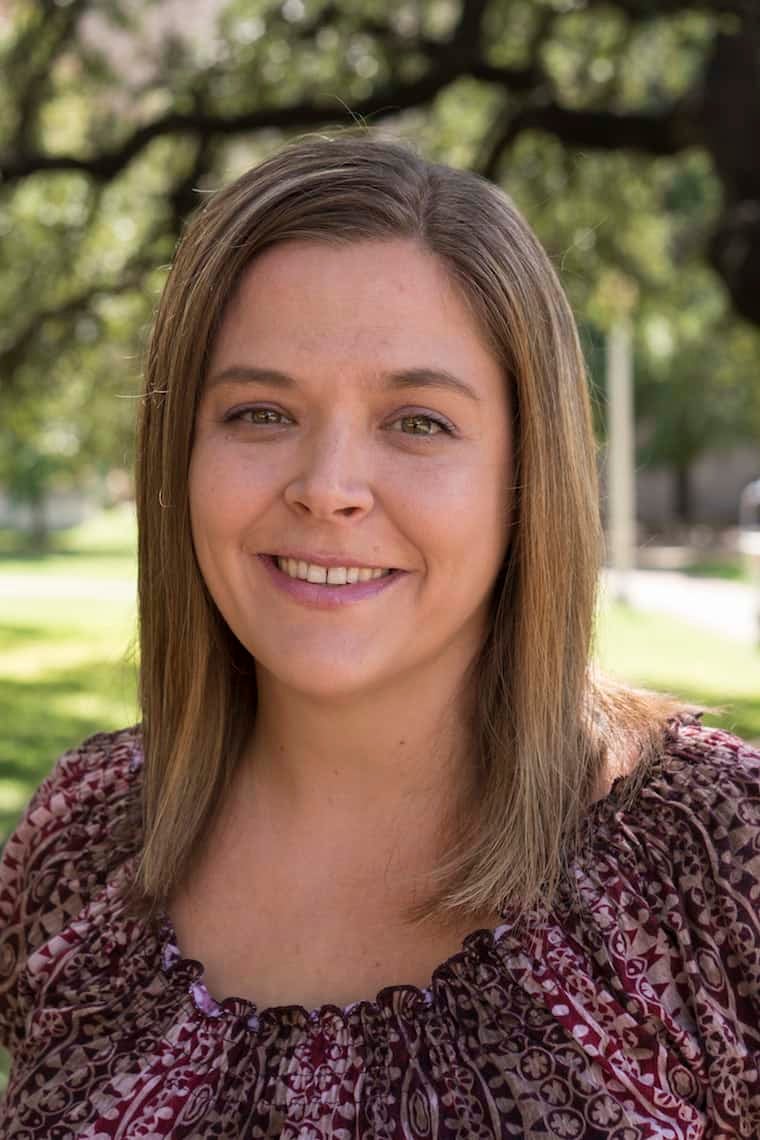What happens to people’s spiritual beliefs when violent crime unexpectedly touches their lives?
Take the case of Sylvia,* whose son was murdered at 16 years of age while riding the city bus. Sylvia and her son lived in an area with high gang activity, and that day the violence spilled onto the bus. Gang members got on in pursuit of a passenger and Sylvia’s son was killed in the shooting that ensued.

Research suggests that 65 percent of parents like Sylvia remain unable to make sense of the murder of their child five years after it happened. This inability can lead to severe trauma and grief, when symptoms such as powerful pining for the deceased, great difficulty moving on, a sense that life is meaningless, and bitterness or anger about the loss don’t go away with time.
“Research also shows that people turn to spirituality as they process trauma and loss,” said Shannon Johnson, a doctoral candidate at the School of Social Work. “The use of spirituality to make sense of one’s loss can result in spiritual growth or spiritual struggle, two distinct processes that have been respectively associated with enhanced or compromised well-being.”
For her dissertation research, Johnson spent a year interviewing individuals like Sylvia – parents who had lost a child, as well as individuals who lost a parent, sibling, spouse, grandchild, niece or nephew, or close friend. The crux of the conversation was spiritual change.
“I started by asking what spirituality meant to each of them, to identify the terminology that worked best because I wanted to honor diversity and not make any assumptions. From there, people talked about what happened to them spiritually in the immediate aftermath and as time went by,” Johnson said.
For Sylvia, spirituality meant that God was close to her in a personal, immediate way. Her son’s death only made that closeness more evident. As she told it to Johnson, God had warned her that something was going to happen the very morning her son was killed.
“I felt it so heavy it was like I knew he [God] was gonna take a piece of my heart,” she remembered.
God also sustained her when she received the news from police officers.
“All of a sudden that heavy presence, that burden was gone. There was just this peace. There was just – it was so strange, there was just this peace. You would think I would be screaming, no!!! But it was just the peace… My kids – the two little ones are holding onto me, and they’re crying. And my son, he’s angry, and he’s hittin’ the wall. And I realize all of this as I’m seein’ it those few seconds. But I was at peace… And then it was like, ‘God you took a piece of my heart. And you were telling me about it,’” Sylvia told Johnson.

And God didn’t abandon her in the aftermath but guided her when, without anyone’s knowledge, she embarked in an 18-month investigation that led to the arrest and conviction of her son’s murderer. Sylvia sought eye-witnesses, followed up on leads, and went as far as venturing at night into gang territory wearing a disguise. As she found tips, sent them anonymously to the police. Sylvia knew she was putting herself in danger, but felt God’s guidance and protection.
“I would get in my car, and I would say, okay God, you’re my pilot. And from that second as I would drive up my driveway I knew, and I had faith that anything that I was gonna encounter, he was gonna be there to take care of me. And that’s what would happen,” she said.
Sylvia went on to study criminal justice and today she works with teenagers in the juvenile justice system. Her faith as well as her desire to honor her son as someone who always helped others has fueled Sylvia’s commitment to lead youth into a better path.
“For Sylvia and many other people I interviewed, helping others is a way to bring something positive out of tragedy. Having been through such pain themselves, they feel uniquely equipped to offer compassion to those with deep need,” Johnson said.
Not everyone is able to get to this point, however.
“Some folks described to me what I might term stagnation. They keep asking themselves the same questions: why didn’t God protect my loved one? How can there be such injustice? It’s like they are trapped in the most paralyzing components of grief,” Johnson explained.
One participant described her experience as being on a bridge and not being able to cross to the other side.
“I wish I could get past what happened to my son,” she told Johnson. “It’s like I’m standing on one side of a bridge, and what happened to him is in the center of the bridge. And the spiritual aspect that I’m looking for is on the other side. And it’s like, I just can’t get across the bridge from where I am now, even though I see it over there, and I think it looks nice.”
Johnson’s ultimate goal is that her research will help homicide survivors cross that bridge and break free from the feeling of stuckness they commonly experience.
“Through my dissertation I will be able to articulate a process of spiritual change, and see what folks tend to go through spiritually, in the aftermath of a homicide. And when you have the process, you have the information to put together an intervention. In the clinical sense, there is not yet an intervention that has been scientifically developed to address homicidal bereavement,” she said.
Johnson also hopes to develop and test a standardized questionnaire to help clinicians understand where their clients are in the process of healing.
Asked how it was to have these intense conversations with homicide survivors, Johnson said it was hard but also inspirational.
“You are meeting people with these tragic experiences and it’s tough, but at the same time I know that there is a flip side to it,” she said. “There is pain and sadness but there is also peace and strength in these stories. Many individuals, even in the darkest and ugliest moments saw the glimmer of this spiritual peace, and were pulled out by it. For me, that’s very inspirational. I think that’s what enables me to do this work.”
***
*Names have been changed. Read more about School of Social Work doctoral candidates and recent graduates.
By Andrea Campetella. Posted January 4, 2016.


